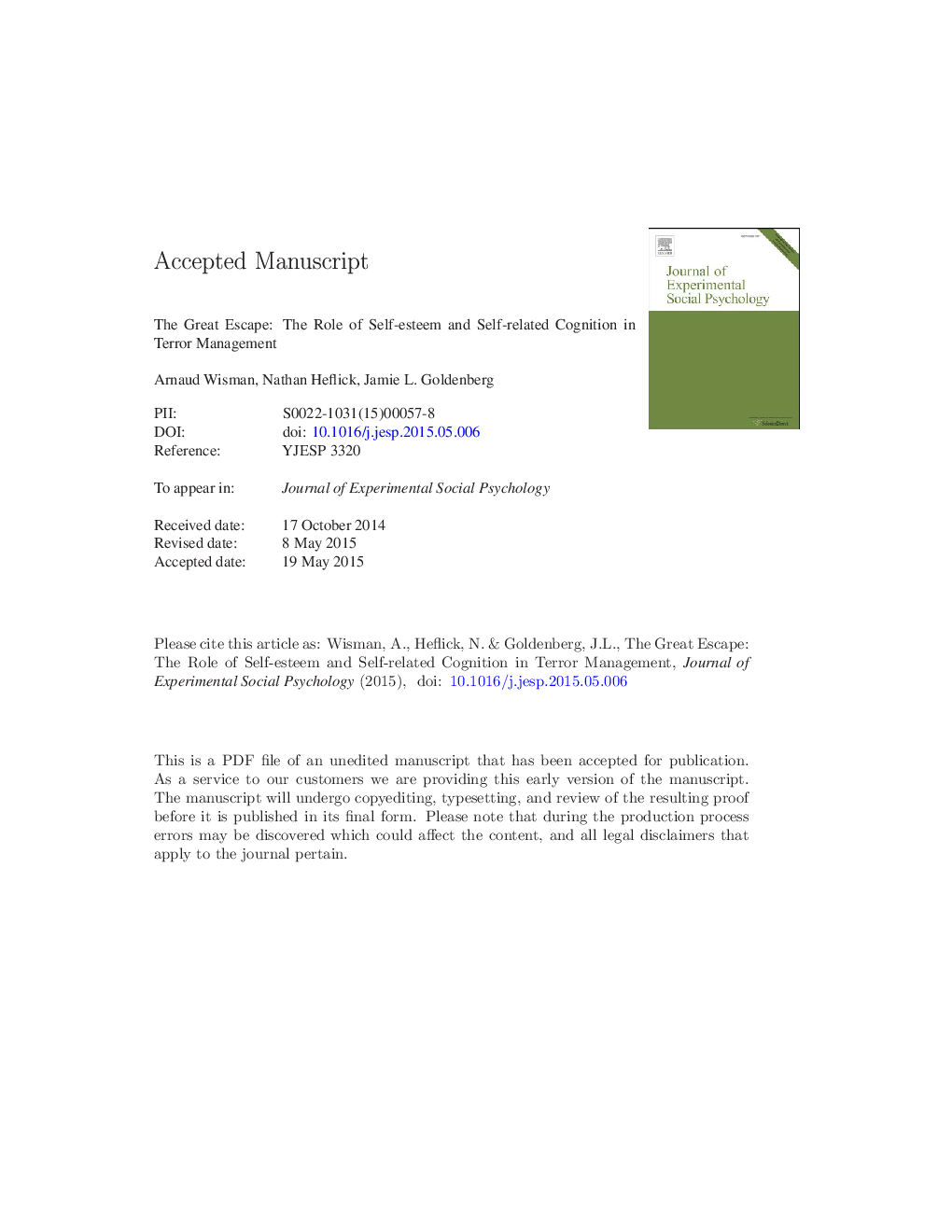| Article ID | Journal | Published Year | Pages | File Type |
|---|---|---|---|---|
| 7324624 | Journal of Experimental Social Psychology | 2015 | 49 Pages |
Abstract
Integrating terror management theory and objective self-awareness theory, we propose the existential escape hypothesis, which states that people with low self-esteem should be especially prone to escaping self-awareness as a distal response to thoughts of death. This is because they lack the means to bolster the self as a defense, and the propensity to bolster the self reduces the motivation to escape from self-awareness. Five studies supported this hypothesis. Individuals low, but not high, in self-esteem scored lower on a measure of private self-awareness (Study 1), showed less implicit self-activation (Studies 2 & 3), were more likely to choose to write about others than themselves (Study 4), and consumed more alcohol in a field study at a nightclub (Study 5) in response to mortality reminders. Implications for terror management theory (highlighting an additional route to defend against mortality awareness), self-regulation, physical health and well-being are discussed.
Related Topics
Life Sciences
Neuroscience
Behavioral Neuroscience
Authors
Arnaud Wisman, Nathan Heflick, Jamie L. Goldenberg,
